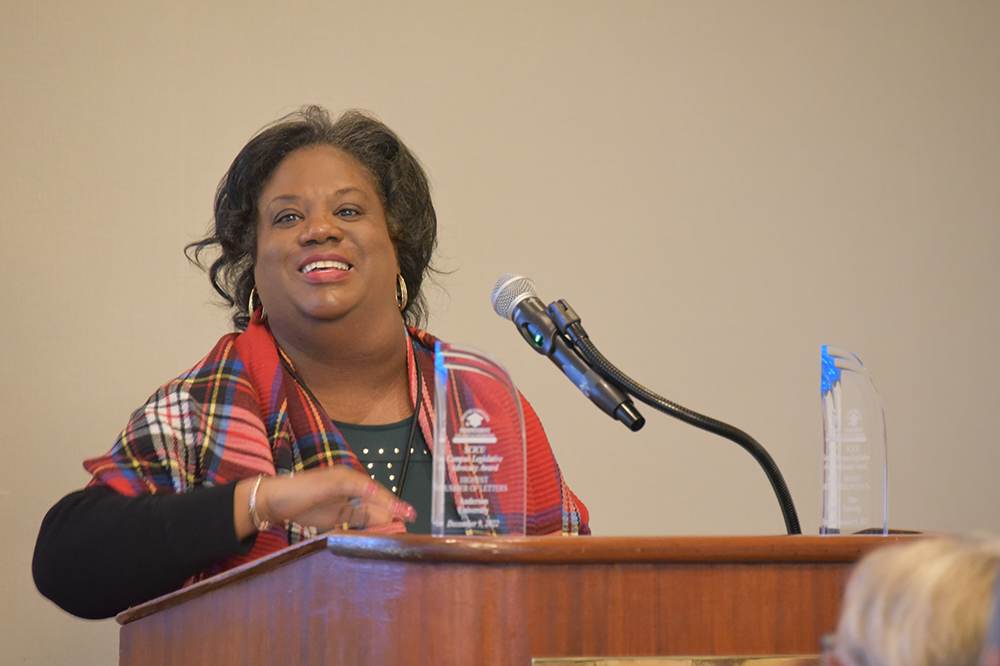
COLUMBIA, S.C. — SCICU’s annual student letter-writing campaign kicked off Dec. 9 with the campus legislative coordinators luncheon at the Capitol City Club in Columbia.
Campus legislative advocates from SCICU member institutions across the state had the opportunity to hear from S.C. Representative Chandra Dillard (D-Greenville), Jake Scoggins, assistant budget director for the S.C. Senate Finance Committee, S.C. Tuition Grants Executive Director Katie Harrison, and other guests as a run-up for the 2023 legislative session and the letter-writing campaign on behalf of the Tuition Grants program.
“Change is certain for the 2023 session,” said Dillard, who also serves as director of community relations for Furman University. “The House has 27 new members, and all committees but one have new chairs. New members and new chairs mean much learning and change. We are fortunate to have a friend in House Speaker Murrell Smith, a Wofford graduate.”
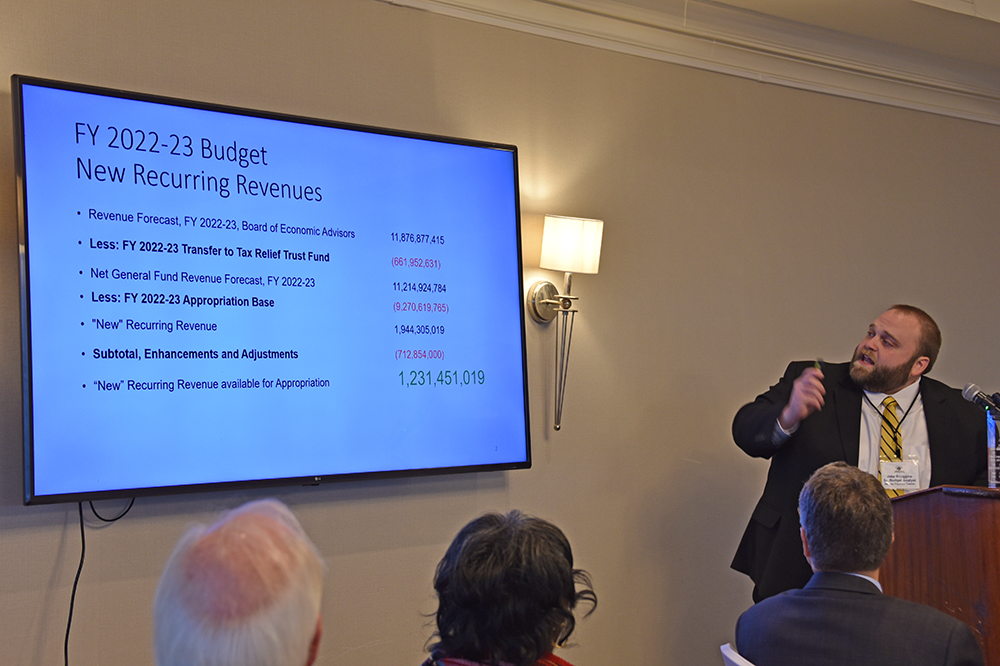
Scoggins followed Dillard’s presentation with an analysis of the state budget and future prospects for funding the Tuition Grants program and the state merit scholarships. He outlined state revenue growth that supported the additional $10 million in non-recurring funding appropriated to the Tuition Grants Commission over the last two fiscal years, allowing the maximum Tuition Grant amount to increase to $4,500 for FY 2022-23.
“While prospects for funding Tuition Grants and state merit scholarships look good, I don’t have a crystal ball for predicting future economic conditions in South Carolina,” said Scoggins.
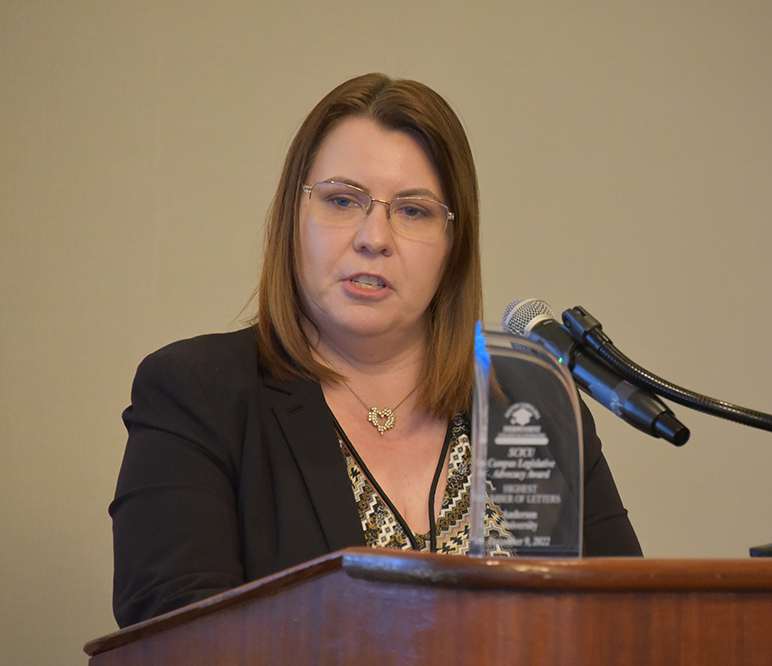
Katie Harrison, Tuition Grants Commission executive director, explained that her agency spends less than 1 percent of their annual budget on administrative costs, allowing practically all appropriated funds to be used directly in helping students.
“We also expanded our eligibility standards to help more South Carolinians qualify for Tuition Grants,” said Harrison. “Those changes mean approximately another 1,000 in-state students may qualify to receive Tuition Grants.”
“As for Tuition Grants funding for FY 2023-2024, we are asking the General Assembly to maintain current funding levels,” added Harrison. “Even though we aren’t asking for increased funding, it would be great if the $10 million in additional non-recurring funding from the last two budget years would be designated as recurring funding for next year.”
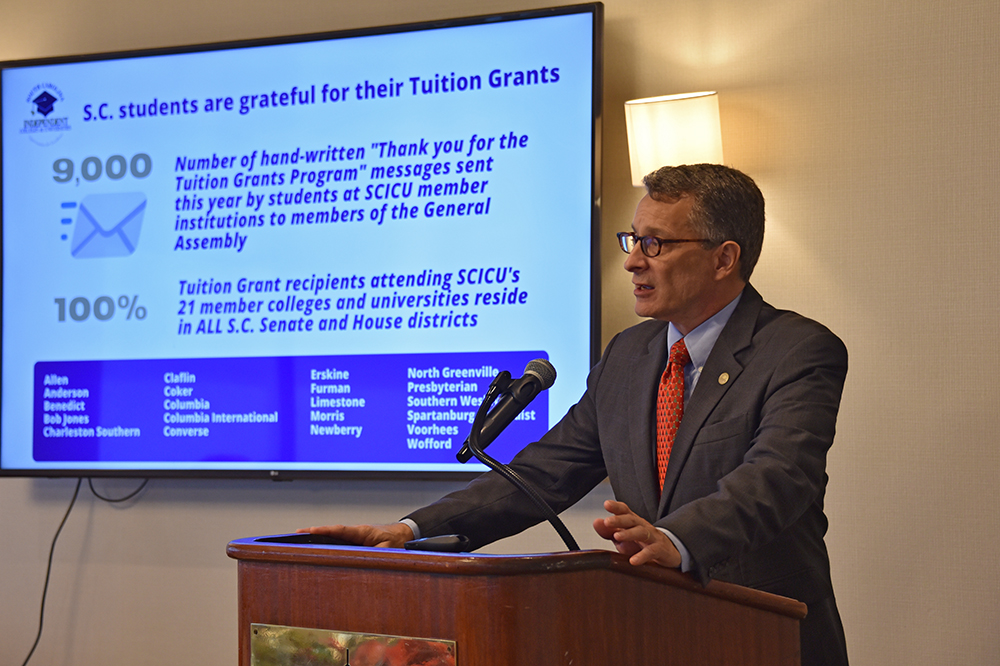
Jeff Perez, SCICU president and CEO, drew upon the presentations of Dillard, Scoggins, and Harrison to emphasize the enormous impact and effectiveness of the student letter-writing campaign.
“Our power is in student letters,” said SCICU President Jeff Perez, who noted that with all the new House members, about one in five have never received a student letter in support of Tuition Grants. “Rep. Dillard and other members of the General Assembly can attest to the power of 9,000 hand-written thank-you letters. Our impact is statewide, as Tuition Grant recipients reside in all S.C. House and Senate districts.”
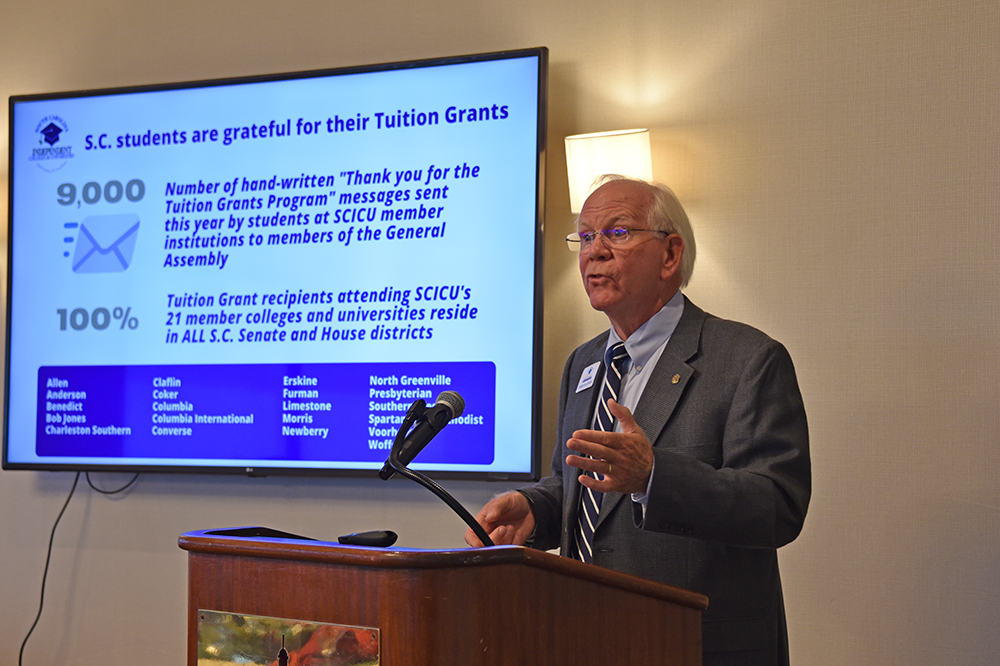
Eddie Shannon, SCICU executive vice president, presented letter-writing suggestions and sample letters to the campus legislative coordinators.
Campus legislative coordinators, many of them being financial aid directors, will work with their institution’s Tuition Grants recipients beginning in January with student letter-writing events.

The 2023 SCICU student letter-writing campaign will culminate with the April 19 Higher Education Day at the S.C. State House. On this day SCICU will announce and celebrate with students the total number of Tuition Grants thank-you letters written to members of the General Assembly. At the April 19 event students will also have the opportunity to meet with their respective representatives and senators and advocate for the Tuition Grants program.
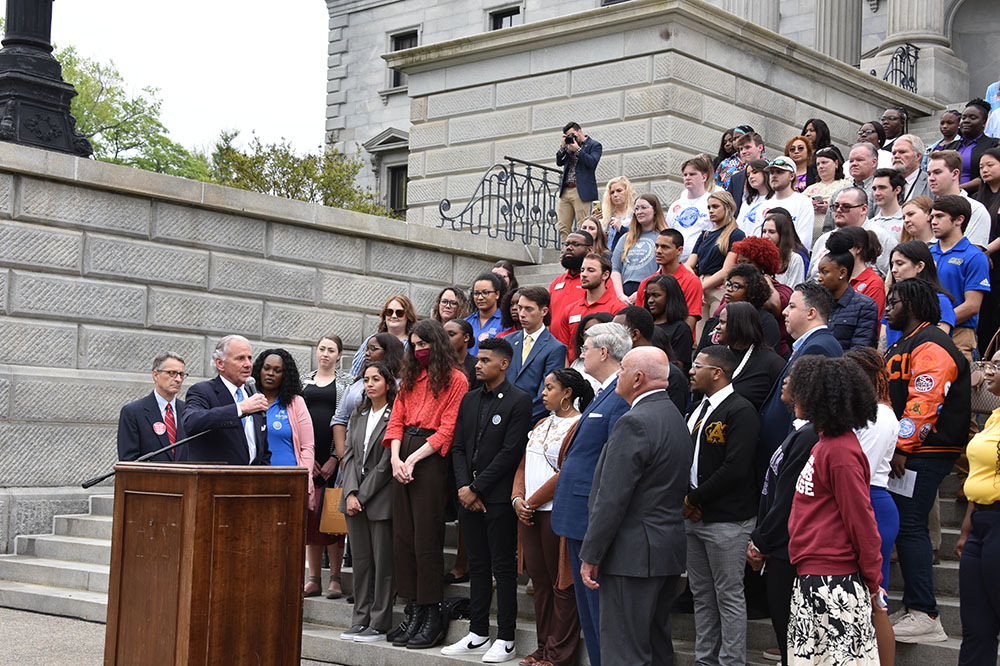
“The 2022 Higher Education Day was our first time holding a joint event with students from public institutions and the technical college system,” said Perez. “We look forward to joining forces again in 2023 in saying thanks to the General Assembly and Governor McMaster for their ongoing support of independent higher education in South Carolina.”

